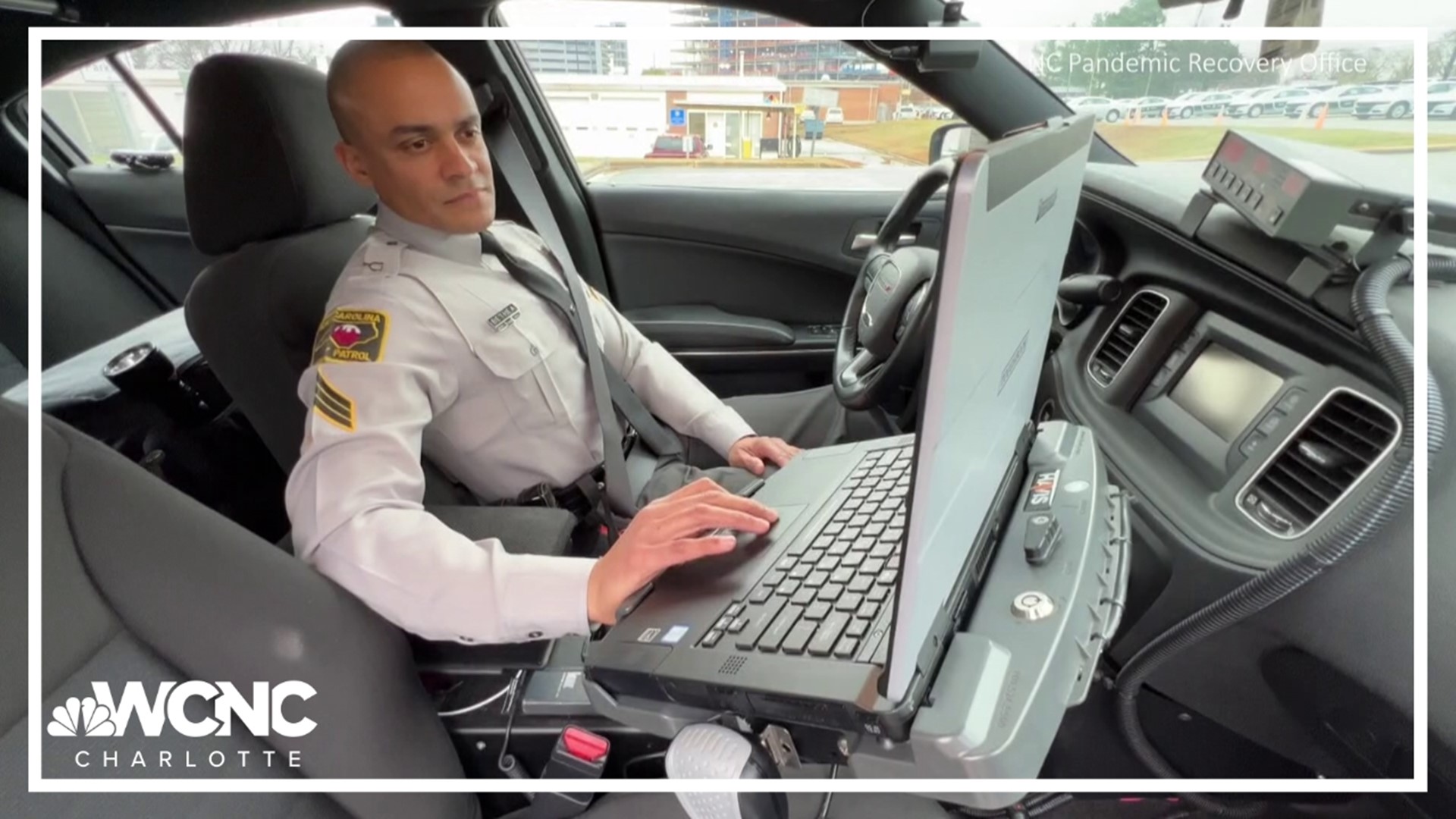NORTH CAROLINA, USA — Emergencies can strike at any time and any place, and the highway is no exception.
That's why the North Carolina State Highway Patrol (NCSHP) wants to be able to get people the help they need as quickly as possible but first, they have to find them.
NCSHP is rolling out new technology to keep families safe. It will improve overall public safety and essentially make it easier to track down 911 callers on the highway.
No one wants to be stuck on the highway, especially during an emergency.
“It’s never a good feeling," South End resident Chad Fink said. "You have an uneasy feeling of a driver going too fast and hitting you and not seeing your truck."
However, figuring out exactly where you are on the highway so you can get the resources you need is not always so simple.
“You’re not always by a mile marker or sign so GPS definitely helps with that,” Fink said. “Sometimes you don’t have the best service so that messes with a lot of things too.”
NCSHP is taking its decades-old telecommunication system offline and bringing new technology to track people’s 911 calls through GPS.
“When you can't locate them, because they don't know where they're at, it's huge,” First Sergeant Chris Knox said. “If they say they’re on I-85, that can mean a lot of things, right? So being able to pinpoint an exact location on I-85, or I-77, that really speeds up the response for those that are coming to help them.”
So, when someone calls 911, it automatically generates their location on a map. Knox said it will also connect people with the trooper closest to where they are.
With shorter response times highway patrol can keep the community safer.
“If they could figure out where I am that would be amazing and they could get to me faster,” Ballantyne resident Jade Teixeira said.
“It just increased our bandwidth, it increased our capabilities and increased the types of services that we can provide to the community,” Knox said.
It is also a benefit to troopers who may need some additional support on the road. The new system also tracks NCSHP patrol units.
“If they conduct a traffic stop and they're out there dealing with someone, and the person becomes violent … No one knows they've stopped this car. No one knows where they were previously,” Knox said.
Now Knox said they can keep better track of its team members, see if they are at a stop longer than normal, and take action much more quickly.
“Over the course of our almost 95-year history, we've had 70 members die on the line of duty,” Knox said. “Maybe having this technology will prevent some of these needless acts of violence against our members. And if something were to happen, we can get someone and get help to them quicker.”
It’s a technology Knox said can save lives.
Contact Jesse Pierre at jpierrepet@wcnc.com or follow her on Facebook, X and Instagram.

